-
About Section 5
-
About the Campaign
-
Victims of Section 5
-
Supporters
-
Get Involved
Insults are rude
We would all like to see a lot less of them. But who should decide whether words, posters or ideas are insulting? Individuals? The police? A judge? Should it ever be a criminal matter? It might surprise you to know that under Section 5 of the Public Order Act, the police and the courts can decide if you or someone else might feel insulted.
Should it be a criminal matter?
Do we really need the police and the courts to deal with insults? Should we not just accept that the risk of insult is a fair price to pay for living in a society which values free speech? We think so, and here’s why.
Are you breaking the law?
“Insulting words or behaviour” are outlawed by Section 5, and this is having a chilling effect on free speech right across our country, in a wide range of communities. The law rightly protects us against unjust discrimination, incitement and violence. It should not be used to protect us from having our feelings hurt. It’s time to reform Section 5.
The Home Office is currently considering its response to a public consultation which saw many people make the case for the removal of “insulting words or behaviour” from Section 5.
Unity
This is a campaign which brings together people from all walks of life; from the religious to the secular and from right across the political spectrum. The Christian Institute and the National Secular Society have both recognised the need for reform of Section 5 if we are to guarantee freedom of expression and the right to a good debate.
At best, Section 5 is the legal embodiment of a well-meaning bureaucrat, and at worse it is used as a way of silencing those who the authorities don’t agree with – be they religious preachers, political activists or protesters.
Freedom of speech
This campaign is about freedom of speech, but it is also about the reach of the criminal law. Should we really rely on the state to protect us from insult?
The following passage from a legal textbook, The Law of Public Order and Protest, notes that Section 5
“…extends the criminal law into areas of annoyance, disturbance and inconvenience. In particular, it covers behaviour which falls short of violence or the threat of violence.”
An inconvenience with no threat of violence is not the sort of situation which should warrant the involvement of the police and the courts, but as our Section 5 Victims page demonstrates, that is exactly what is happening.
You may have come across some of these accounts in the press from time to time, but just consider for a moment what it means to be hauled up in front of a policeman, questioned as a criminal or even arrested and dragged to court for speaking your mind or for inadvertently insulting someone.
Sign language barrier
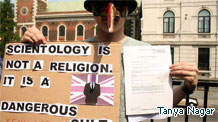
Section 5 was used to issue a court summons to a 16-year-old protester for peacefully holding a placard that read: “Scientology is not a religion it is a dangerous cult.” An allegation that the sign was “abusive or insulting” was referred to the Crown Prosecution Service. A civil liberties group intervened and the case was dropped.
Barking Mad

Kyle Little was arrested under Section 5 for what was described as a “daft little growl” and a “woof” aimed at two Labrador dogs. Although the dog owner did not want a prosecution, Mr Little was detained for five hours and prosecuted. He was convicted and fined. On appeal Newcastle Crown Court quashed his conviction. The case cost the taxpayer £8,000.
Tatchell Tussles with Hizb ut-Tahrir

Peter Tatchell and members of the LGBT group Outrage! were arrested and charged under Section 5 for shouting slogans and displaying placards that condemned the persecution of LGBT people by Islamic governments. They were campaigning against a rally led by the fundamentalist Muslim group, Hizb ut-Tahrir, who called for the killing of gay people, apostates, Jews and unchaste women. The placards held up by Outrage! were deemed by police to be insulting and likely to cause distress.
Why the Long Face?

An Oxford student was arrested under Section 5 for saying to a policeman: “Excuse me, do you realise your horse is gay?” A spokesman for the Thames Valley Police said: “He made homophobic comments that were deemed offensive to people passing by.” Eventually prosecutors said there was not enough evidence and decided to discontinue the case.
Checking Out the Law
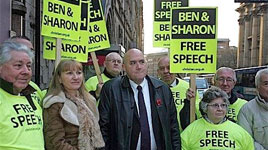
Christian hoteliers Ben and Sharon Vogelenzang were charged with breaching Section 5 for engaging in a conversation with a Muslim guest about Mohammed and Islamic dress for women. After lengthy questioning by police they were charged and later tried at Liverpool magistrates’ court. They were found innocent after a judge said their accuser’s evidence was not reliable.
Cafe Crazy?

Cafe owner Jamie Murray was warned by two police officers to stop playing DVDs in his Christian cafe that showed texts from the New Testament. Following a complaint from a customer, the police officers told Mr Murray that they were investigating a possible Section 5 offence. Later Lancashire Police said that the police officers had misinterpreted the Public Order Act and apologized for any distress caused to Mr Murray.
The Law of the Street

An elderly street preacher was convicted under Section 5 for displaying a sign which said homosexual conduct was immoral. Some passers by became angry and tried to remove the sign, others threw water and dirt at Mr Hammond. When police were called, they arrested Mr Hammond. He was prosecuted, convicted, and fined £300 plus £395 court costs. The High Court later upheld the conviction saying magistrates were entitled to find the sign “insulting” to homosexuals. No one in the crowd was charged.
Thought Police
Cumbria street preacher Dale Mcalpine was held for seven hours and charged with a Section 5 offence for saying “homosexuality is a sin.” The comments were not made as part of his public preaching but in response to questions from a police community support officer about the issue of homosexuality. Cumbria Police later admitted they acted unlawfully, and agreed to give £7,000 compensation to Mr Mcalpine in settlement for a claim of wrongful arrest, unlawful imprisonment and breach of his human rights.
Breach of the Preach

Section 5 was used by police officers to try to stop Andy Robertson preaching in Gainsborough marketplace. The police claimed people might be “offended” by the preaching. Mr Robertson continued to preach but described the incident as “disturbing”.
Seal of Disapproval

Animal rights protesters were threatened with arrest and seizure of property under Section 5 for objecting to seal culling by displaying toy seals coloured with red food dye. They were told by the police that the toys were deemed distressing by two members of the public. The police then ordered the protesters to move on.
You couldn’t make it up
An atheist pensioner who placed a small sign in the window of his home saying ‘religions are fairy stories for adults’ was told by police he could be arrested under Section 5 if he refused to remove the poster. John Richards, from Lincolnshire, emailed police asking what would happen if he put up the A4 sign. Lincolnshire Police replied ‘If a complaint is made then it can lead to you being arrested and dealt with for the offence of section 5 public order causing alarm and distress.’
Supporters of the Reform Section 5 Campaign include:

The Christian Institute
The Christian Institute exists for “the furtherance and promotion of the Christian religion in the United Kingdom” and “the advancement of education”. It is a non-denominational Christian charity committed to upholding the truths of the Bible. We are supported by individuals and churches throughout the UK.

The National Secular Society
The National Secular Society is Britain’s only organisation working exclusively towards a secular society. Founded in 1866, we campaign from a non-religious perspective for the separation of religion and state and promote secularism as the best means to create a society in which people of all religions or none can live together fairly and cohesively.

The Peter Tatchell Foundation
The Peter Tatchell Foundation (PTF) seeks to promote and protect the human rights of individuals, communities and nations, in the UK and internationally, in accordance with established national and international human rights law.

Big Brother Watch
Big Brother Watch was set up to challenge policies that threaten our privacy, our freedoms and our civil liberties, and to expose the true scale of the surveillance state.

Freedom Association
The Freedom Association is a non-partisan, centre-right, libertarian pressure group. TFA believes in the freedom of the individual in all aspects of life to as great an extent as possible.

The Bow Group
The Bow Group is the oldest conservative think-tank in the United Kingdom and is delighted to support the excellent campaign to Reform Section 5 of the Public Order Act. This clumsy legislation has only emboldened the politically correct or anti-free speech advocates who are more concerned with offence than they are with liberty.

The Manifesto Club
The Manifesto Club campaigns against the hyperregulation of everyday life. We support free movement across borders, free expression and free association. We believe that the freedom issues of the twenty-first century cut across old political boundaries, and require new schools of political thought, and new methods of campaigning and organisation.

New Culture Forum
Since it was formed the New Culture Forum has been challenging the cultural orthodoxies – the dogmatic relativism and liberal presumptions – which remain dominant in the media, academia, education, and British culture in its widest sense. Through our research projects and highly-praised and influential publications, we have contributed fresh right of centre thinking to the public and political debate on the cultural issues of our time.
Individual supporters include:
Peter Tatchell

“Freedom of expression is one of the most important of all liberties and human rights. It should be only restricted in extreme and very limited circumstances. The open exchange of ideas – including unpalatable, even offensive, ideas – is a hallmark of a free and democratic society. Section 5 of the Public Order Act 1986 is a menace to free speech and the right to protest. It has been repeatedly abused by over-zealous police and prosecutors, to variously arrest gay rights campaigners, Christian street preachers, critics of Scientology and even students making jokes. I’ve been a victim of its misuse when protesting peacefully against Islamist extremists. For all these reasons, I am giving my support to Reform Section 5.’
David Davis MP

“Section 5, amongst other things, makes it illegal to insult somebody. This is a law put in place in 1986 and it makes other things illegal which should be, incitement of violence is illegal, abusive behaviour is illegal, but an insult? Who should decide who’s insulted? I’m a politician. I get insulted all the time. It’s part of the cut-and-thrust of politics and actually its an important part of democracy that you’re allowed to say, within reason, what you like. What this does is actually make the courts and the police sit in judgement on whether somebody feels insulted or not which actually has a terrible chilling effect on democracy.’
Lord Dear
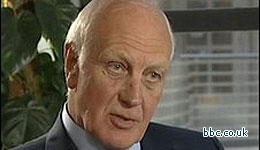
“No matter what your view, free speech moderately expressed is paramount. A significant part of human freedom lies in the ability to express our opinions freely. There is a clear public interest in protecting the public from threatening or abusive behaviour, but criminalising mere insult goes too far. That is why I am supportive of the campaign to Reform Section 5.’
Edward Leigh MP
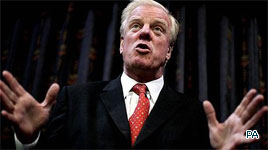
“For centuries, men and women in Britain have fought for the right to express in words what is in their hearts. Freedom of speech is, perhaps, our most precious civil liberty after the right to life itself. It is not legitimate to criminalise words or behaviour that are merely insulting in the ordinary meaning of the word. One man’s insult is another man’s argument. What one person finds insulting may be sacred truth to the next person. If people are allowed to dial 999 every time they feel insulted, the result is a colossal waste of police time and a dangerous chilling effect on freedom of speech. That is why I support the campaign to Reform Section 5.’
Nigel Farage MEP
“In a robust democracy people must be free to insult and be insulted. We have laws that protect against incitement to violence and hatred, that should be enough. To protect my feelings from those who wish to laugh at me or hold me in contempt is a freedom I never wanted, nor hoped for. So three cheers for this campaign, three cheers for those like Peter Tatchell, The Christian Institute, David Davis, The National Secular Society, the Freedom Association, Big Brother Watch and all the others standing up for the liberty of people to throw verbal brickbats around.’
Dr Julian Huppert MP
“I am delighted to see that the reform of Section 5 has finally gained the attention it deserves. For years this has been one of those niche liberal issues about which very little has been done. But this insidious piece of legislation goes right to the heart of what it means to live in a modern, liberal society. Criminalising behaviour for merely being ‘insulting’ means that the majority can silence the use of any words or opinions with which they do not agree. That is so patently an affront to our freedoms that it should be changed as quickly as possible.’
Josie Appleton, Director, Manifesto Club

“Section 5 criminalises everyday encounters and disputes, and gives police officers an astonishingly broad degree of discretion to define the ‘crime’ of insult. There are few groups in society that have not, at some point, fallen victim to Section 5. Campaigners of all stripes should stand up against it.”
John Glen MP

‘Should the law really criminalise insulting words? Surely insult is in the eye of the beholder, so how can the police be expected to regulate that? ‘Abusive’ behaviour is clear cut: we all know it when we see it, and it is right that the law addresses it. ‘Threatening’ behaviour is absolutely unacceptable, and we need laws to tackle it. But ‘insulting’? The Government should bolster freedom of expression by removing ‘insulting’ from Section 5. ‘
Andrew Turner MP
‘Some of the more controversial convictions under Section 5 have rightfully received widespread publicity, and there is a growing awareness that you can be prosecuted for simply speaking your mind. Many people are worried about this as they instinctively feel that in a democracy you should be free to say what you think. I know that the public generally has far more sense than the authorities give them credit for. Insulting people is not very nice – but the only court that should be involved is the court of public opinion!’
Nigel Dodds MP

‘Free speech is precious. When you read cases in the news of people being arrested for nothing more than having a controversial opinion, so often it is Section 5 that is to blame. We need to trim it’s claws. Deleting “insulting words” from its scope is a moderate, sensible step that everyone can support.’
Tom Brake MP

‘With freedoms we can never afford to stand still; we are always swimming against the current. That’s why I am so glad about this new campaign. Reforming Section 5 is a small but important step in rolling back the state’s intrusion into our liberties, and restoring some of our most cherished rights.’
Fiona Bruce MP
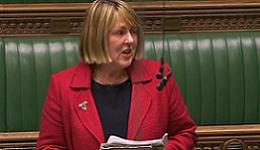
‘I support the Reform Section 5 campaign because freedom of speech is one of the most precious – and fundamental – elements of a free society. Lose that and you risk losing a whole lot more.’
Philip Davies MP

‘Ever since I was elected to Parliament, I have spoken in the House of Commons against measures which undermine freedom of speech and perpetuate State sanctioned political correctness. Section 5 of the Public Order Act is just such a measure and that is why I am very pleased to support this campaign.’
Caroline Lucas MP

Adrian Sanders MP
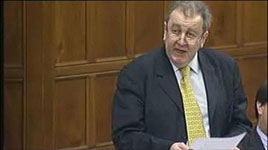
Sammy Wilson MP

James Wharton MP

Philip Hollobone MP
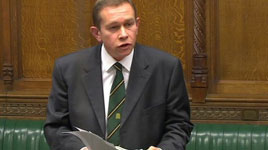
Gordon Henderson MP

Tristram Hunt MP
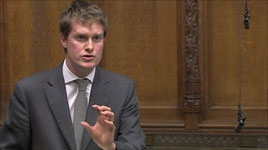
Kate Hoey MP

David Nuttall MP

Jim Dobbin MP

Sir Alan Beith MP
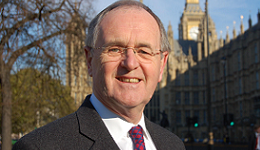
Steve Baker MP

